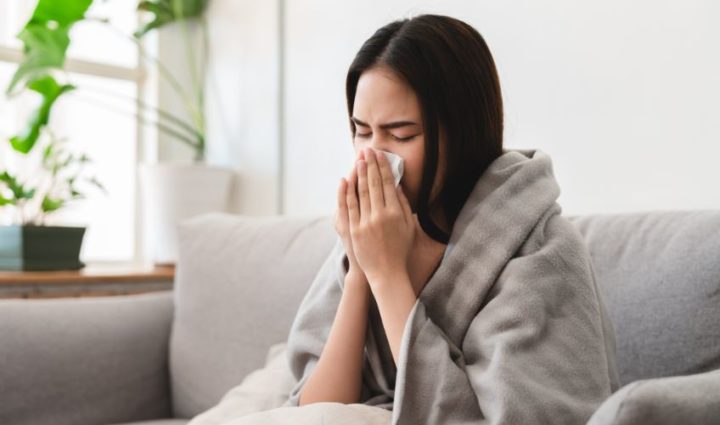
Important: This article is for informational purposes only. Please read our full disclaimer for more details.
Blood thinners are chemical substances which are used to avoid or prevent clotting of blood. Blood clots cause a hindrance in the flow of blood to the heart and in extreme situations can also completely stop this process. Blood thinners are used as an oral or via intravenous medication to stop the development of such clots. They are usually used by individuals with heart diseases such as heart valve disease, irregular heart rhythms etc.
Unexpected Side Effects of Blood Thinners
The use of Blood thinners is controversial due to the dangers involved in its implementation and the subsequent side-effects attach to it. One should always be aware of the few common side-effects of its usage and take necessary measures to minimize their effect on the body.
1. Excessive Bleeding
A common consequence faced by individuals who use blood thinner is the excessive release of blood. Since the blood thinner interferes with the blood ability to clot together, it’s ability to regulate the flow is hampered. This essentially means that the slightest cut or injury can lead to excessive amount of blood loss from the body. Doctors suggest some common methods to deal with the issue which includes a nutritious and healthy diet with limited quantities of Vitamin K.(1)
2. Effect on the Menstrual Flow
An increased menstrual flow is one of the common side-effects of using blood thinner in women. While there is no serious harm, it may lead to the excessive passing of blood and blood clots during the menstruation period which might lead to weight loss. One should keep a healthy diet in order to balance out the loss of blood from the body post-menstruation period.(2)
3. Bruising
Blood thinners can lead to frequent bruises on the body as well as some unusual bruising due to the heavy flow of blood. One should take extra care of their body and also start regular physical activity to strengthen the body in dealing with such injuries.(3)
4. Bleeding Gums
One of the major reasons for bleeding gums is the use of blood thinner. The use of various low-dose aspirin severely affects the oral hygiene. However, since an immediate stop on the medication used in blood thinning process can be dangerous, dentists often recommend taking measures to reduce the flow which includes taking better care during flossing, shaving and toothbrushing.(4)
5. Red or Tarry Stools
A change in the stool colour is a subsequent effect of blood thinning due to the loss of blood from the body.(5)
[ Read: Serious Side Effects of Muscle Relaxers ]
6. Red or Brown Urine
One might experience the passing of blood with urine giving it a red or brown colour which is common to experience while using blood thinners. If such discharge persists for a longer time period then one should consult the doctor.(6)
7. Itching and Rashes

Plavix, a largely consumed blood thinner medication often leads to itchiness in the body. Blood thinners may result in reddening and rashes on the skin as well.
It is important to understand that any severe change to the natural functioning of the body will also result in some after-effects as mentioned above. The process of blood thinner is one major change in the natural process of blood flow in the body and hence can witness a negative response from the body at times. Therefore, utmost care and the necessary prescription should be taken when one has to use blood thinners in order to minimise its side-effects on the body.(7)
8. Weak Body
The excessive blood loss naturally leads to a weak and low-immune body system which requires an immediate assessment by the doctor. It is important that adequate measures are taken to strengthen the body during the use of blood thinners. Sometimes one side of the body experiences evidently more weakness as compared to the otherwise side which can often lead to serious complications and should immediately be reported to the doctor.
[ Read: Unexpected Side Effects Of Multivitamins ]
9. Frequent Physical Pain
Chronic physical pain is also an after effect of the use of blood thinner which may lead to dizziness and frequent comfort. Since the effect of the use of blood thinners varies among individuals, a personal check-up is advisable after the start of the medication to reduce such pain.
10. Chest Pain
One may experience an excruciating pain in the chest or a mild discomfort depending upon the blood thinners effect on different body types. Such a pain is common and should be dealt with the intake of prescribed medicine. One should also avoid smoking during the treatment process for quick recovery.
You Might Also Like:
- Is Turmeric A Blood Thinner?
- How Use Apple Cider Vinegar to Lower High Blood Pressure?
- How To Check Blood Pressure Manually
- How to Take Apple Cider Vinegar to Lower Cholesterol?
- How Does Coconut oil Affect Lower Cholesterol?
- Is Yogurt Good For Cholesterol
- Epsom Salt For High Blood Pressure
- 10 Best Foods to Lower High Blood Pressure Naturally
- 6 Easy Yoga Poses to Control Your High Blood Pressure
- 5 Effective Home Remedies for Low Blood Pressure
- 10 Common Side Effects of Taking Abortion Pills
- Top 10 Food Influencers On Instagram India
- The 10 Best Healthy Fat Foods That You Should Eat
- Top 10 Foods High in Leucine
- Top 10 Foods High in Glycine
Image:- 1
















